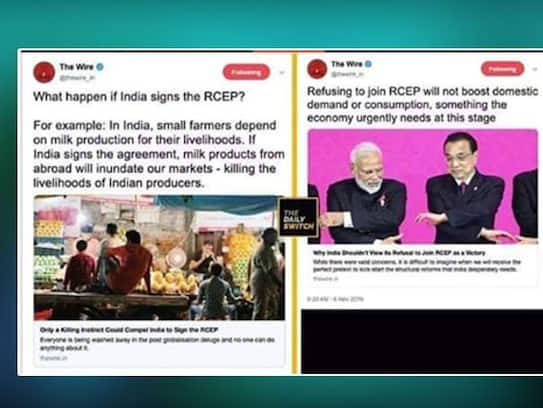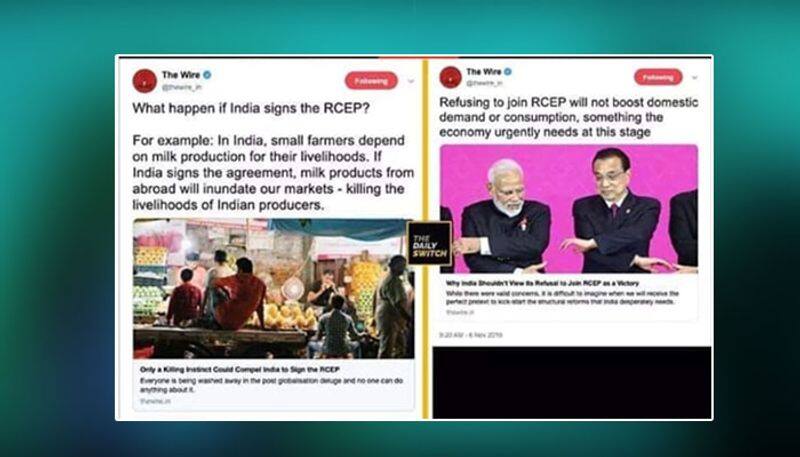

While it is fine to criticise the government and keep it on tenterhooks, it should not be that you oppose a particular personality because he has to be opposed.

Bengaluru: When the news that India might sign the RCEP agreement spread like wildfire, there was a massive debate. Of course, that could be understood because the local producers, for example, milk producers, would be affected as an inundation of milk from foreign countries would mean bad business for them.
And as the day approached and Prime Minister Narendra Modi did not sign the agreement saying his conscience didn’t permit him to compromise on local issues affecting India, citizens were indeed delighted.
Also watch: Why India hesitates to sign RCEP
But a section of media, as exposed by twitter users points to the fact that they have no definite take on the issue.
For example, just see the following tweet.

As pointed out by the user, while the whole world was guessing as to what Modi would do regarding RCEP, the media in question reasoned out as to why he should not do. Juxtaposed with this tweet is how the media had an antithetical view after Modi decided not to sign it.
Does that boil down to the question: Should everything that Modi does be opposed for the sake of it?
Sreenath Sheshadri, a BJP spokesperson says, “Yes it is right. They want to oppose Modi for the sake of it. Modi wanted certain changes in the agreement so that Indian interests would not be compromised. But the concerned countries did not honour it. Modi takes decision based on merits, but Opposition calls the shots based on personality.”
What is RCEP?
In simple terms, it is an agreement related to free trade between as many as 16 countries.
What is the aim of RCEP?
Its aim is to drop or demolish prices or tariffs or duties between the member countries. But why? Well to ensure that goods can pass boundaries with ease and minimal fuss.
Countries who are a part of RCEP number 16. 10 from the ASEAN group and six countries participating as dialogue partners. Our country India falls in the second group, that is, it is one of the six dialogue partners.
How will RCEP affect India?
Well, China exports a lot of stuff to India. And out of all these things exported, electronic equipment and electrical equipment dominate. Now, if you were to contrast this with India, India’s exports to China revolve around unprocessed stuff like cotton and yarn. So there is a growing trepidation that, if duties, tariffs are invalided, India will get a hammer knock on its economy.
If this is the case with China, the one with other business partners is more or less the same.
Read Exclusive COVID-19 Coronavirus News updates, at MyNation.